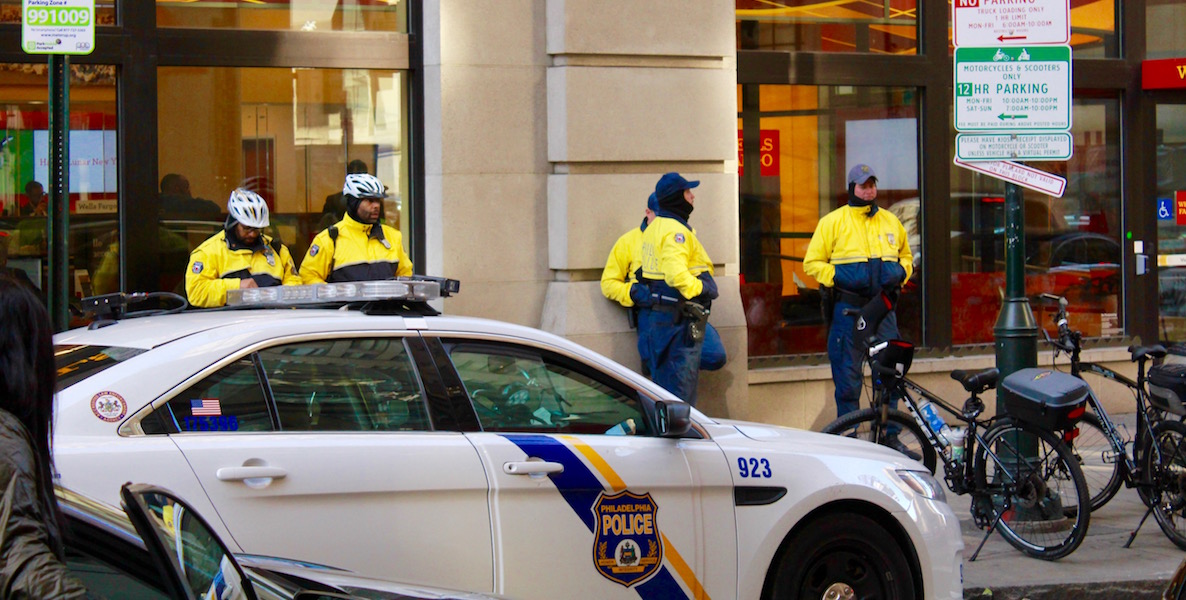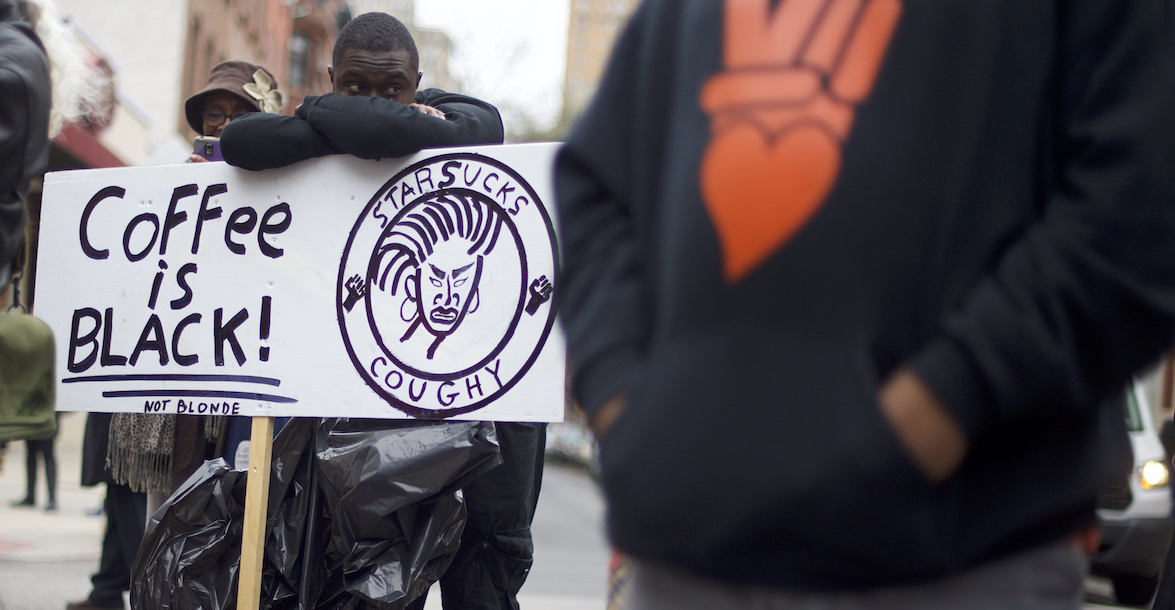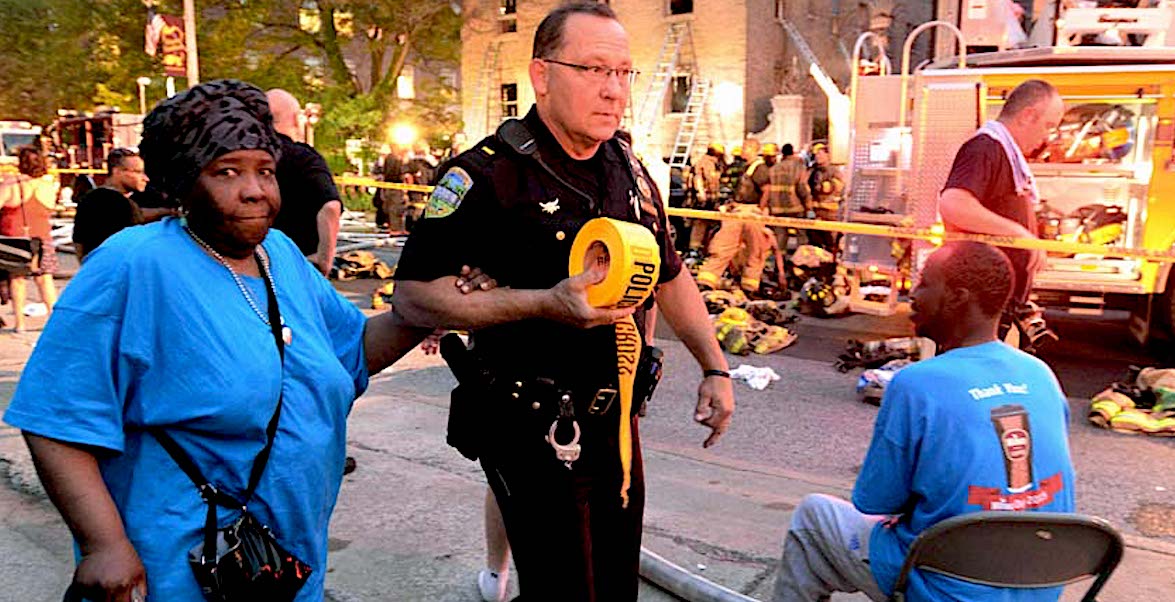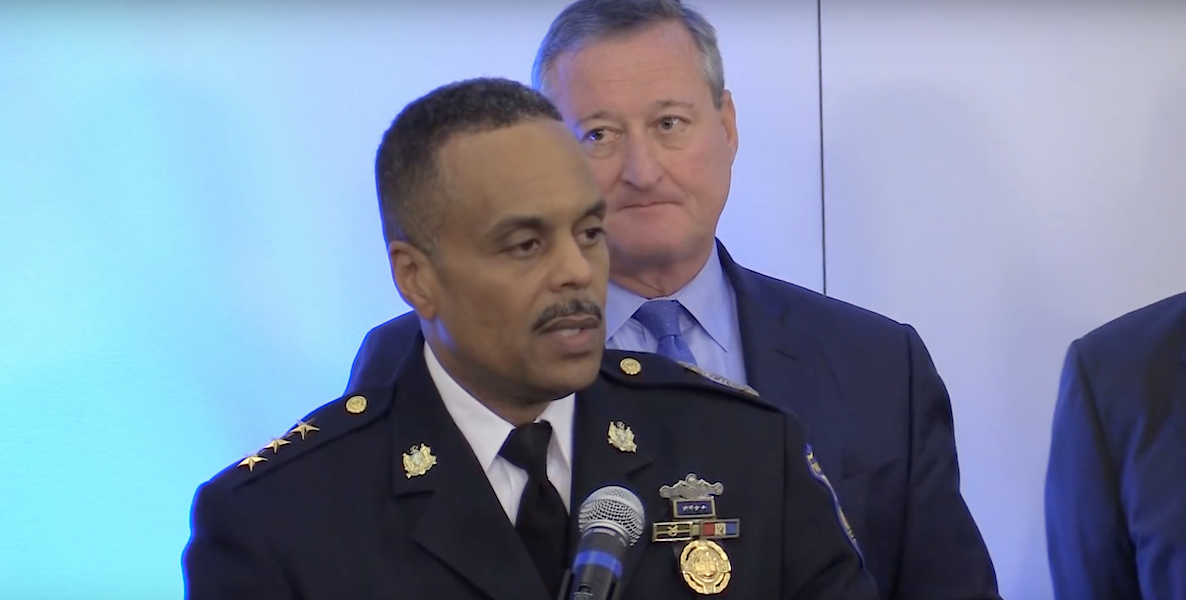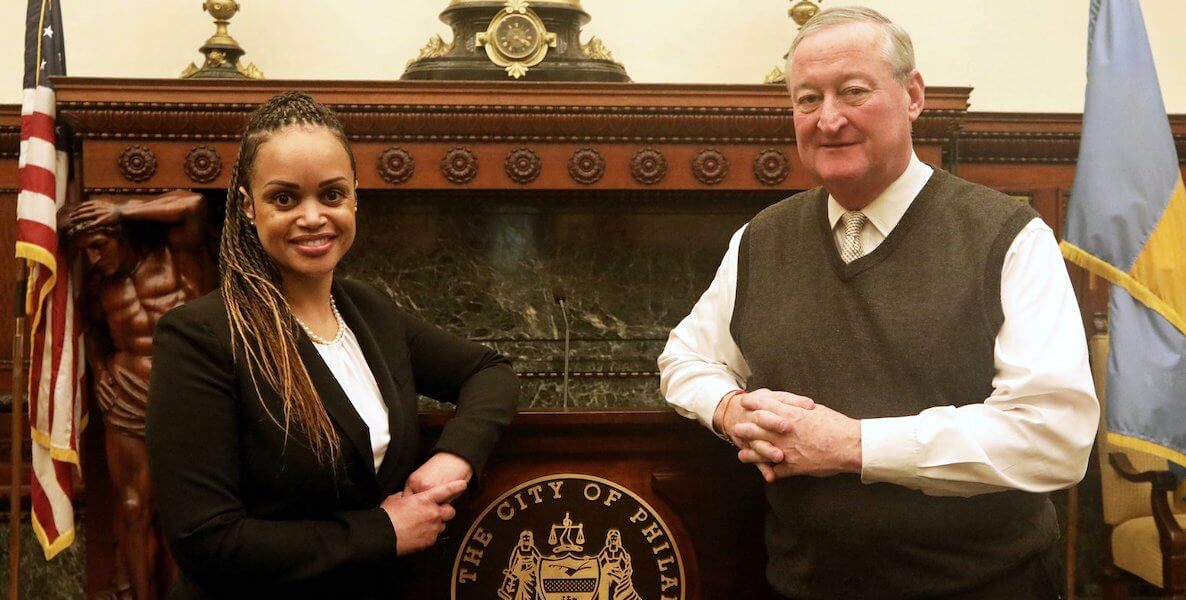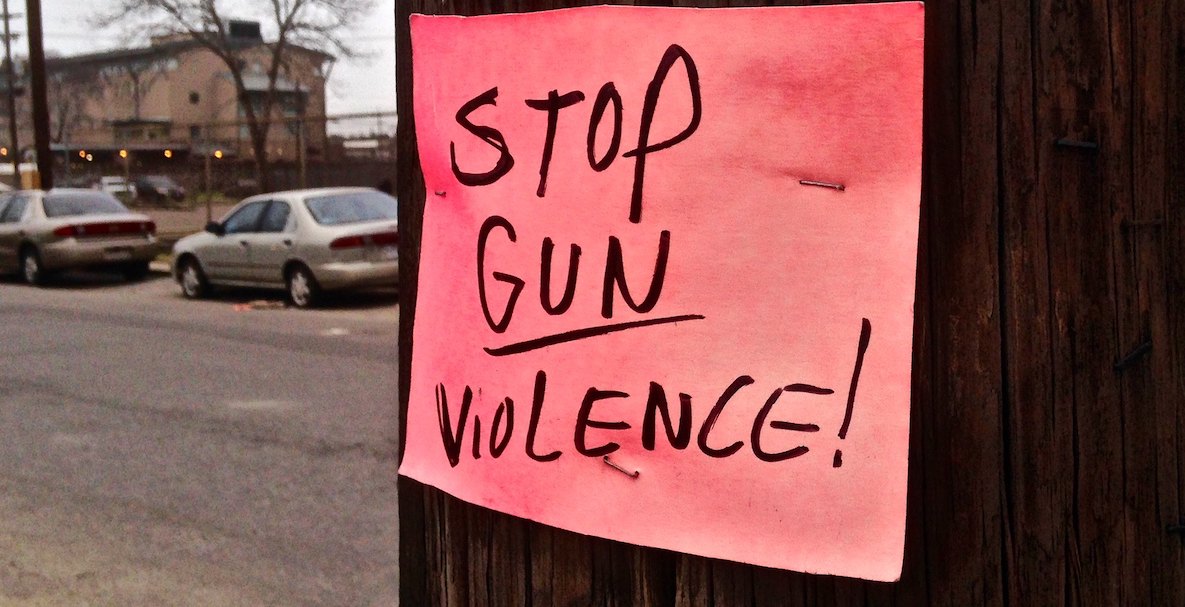Back in October, after the Phillies introduced their new manager to the Philly press horde, one fan tweeted in response to the cool and in-charge performance of new hire Joe Girardi: “Is it possible to win a press conference?”
![]() I was asking the same exact question after new Police Commissioner Danielle Outlaw wowed at her introductory press conference on Monday. At 43, she might not yet have Girardi’s bona fides—he was, after all, a World Series-winning Yankees manager—but, in affect and substance, the wonderfully named Outlaw gave off precisely the same impression: Here’s someone who is in charge, who is not afraid to lead, who marries ideas that threaten the status quo with a practical embrace of the incremental step over the revolutionary Hail Mary.
I was asking the same exact question after new Police Commissioner Danielle Outlaw wowed at her introductory press conference on Monday. At 43, she might not yet have Girardi’s bona fides—he was, after all, a World Series-winning Yankees manager—but, in affect and substance, the wonderfully named Outlaw gave off precisely the same impression: Here’s someone who is in charge, who is not afraid to lead, who marries ideas that threaten the status quo with a practical embrace of the incremental step over the revolutionary Hail Mary.
![]() In addition to her swagger, Outlaw extemporaneously hit all the right notes substantively. She talked about the key pillars to 21st-century policing—“dialogue, transparency and accountability”—and went into depth on the successful gun violence reforms in her native Oakland, calling the data-driven approach “spearfishing” rather than “casting a wide net, because we know that it’s a small percentage of the population committing a large percentage of the crime.”
In addition to her swagger, Outlaw extemporaneously hit all the right notes substantively. She talked about the key pillars to 21st-century policing—“dialogue, transparency and accountability”—and went into depth on the successful gun violence reforms in her native Oakland, calling the data-driven approach “spearfishing” rather than “casting a wide net, because we know that it’s a small percentage of the population committing a large percentage of the crime.”
She displayed humility, twice noting that “I don’t know what I don’t know,” yet also backbone: On the criticism of her handling of protesters in Portland, for instance, she stood her ground: “I am a firm believer in upholding free speech, the right to assembly, but what I will not tolerate are those who come under the guise of free speech to create acts of violence against others.” (It is perhaps a good sign that protesters of both the far left and far right in Portland have criticized Outlaw).
This week, Danielle Outlaw exhibited stellar political talent; in order to maximize it, Kenney must let Outlaw be Outlaw, must have her back as she radically changes the way cop and citizen interact.
Time and again, Outlaw exhibited the type of direct and thoughtful leadership some of us have yearned for in the Mayor. This space is often critical of Kenney, and often urges him to think bigger. In a city with our litany of existential threats—ballooning murder and tax rates, the worst poverty in the nation, the wrong kind of job growth, and a school system with subpar graduation rates and buildings that poison—a signature first term achievement of yet another tax, this one on sugary drinks, does not rise to the challenge of our problems.
Mayor Kenney, unthreatened at the ballot box owing to the inertia of a corrupt, one-party town (Moscow on the Delaware), spent much of his first term reticent, seemingly content to shrug and accept the way things had always been done. As evidenced by his obsequiousness before union power, he governed by shying away from the big decisions that could engender backlash from entrenched, narrow interests.
By choosing an outsider and qualified change agent like Outlaw, though, Kenney has taken a step toward rewriting that narrative, defying the preferences of the police union as well as many in the department itself. “Make no mistake,” he said. “While I have tremendous respect for our officers, the Philadelphia Police Department needs reform.” Presumably, those reforms include not only policy changes but also addressing the much-covered cultural issues—ranging from sexual assault to gender discrimination to racist social media postings—that pervade the department, and that suggest the problem goes beyond the acts of “a few bad apples.”
I know what you’re thinking: Why be surprised that ultra-progressive Jim Kenney, who has borrowed much from Bill DeBlasio’s far left playbook in New York, would hire an African-American woman? Because, as Outlaw herself implied, what’s noteworthy about her and her career is not that which is self-evident in her identity. It’s that she has real chops as a threat to the keepers of a city’s status quo—irrespective of race and gender.
Judging from her introductory remarks, her deft handling of questions, and her 2018 “Road to Reconciliation” TED Talk—“there can be humanity in authority”—she stakes out ground as a reformer and not as an idealogue, as a leader who listens and mediates between the extremes.
Let’s dissect the most telling moment along these lines during Outlaw’s presser. Asked to ruminate on the headline here—that she will be Philadelphia’s first African-American woman to head its police force, as she was in Portland, Outlaw got personal: “For a long time, it was a distraction,” she said. “People said, ‘Oh, you got this job because’…I’ve been a Black woman all my life and I chose the career of law enforcement, so I happen to be a police officer who is a Black woman.”
![]() At that, the room burst into spontaneous applause, but it’s what she said next that bodes well for change in Philadelphia: “But with that said, I bring a very unique perspective to this role,” she said. “My sons are 21 and 18. Being a mother, I understand the fear that’s out there in our communities about the police. I understand the mistrust. I understand also, on the other side, why we do what we do in law enforcement, I understand how we train. If I have to be that conduit, I’ll be that conduit. I think it’s important for me to explain these perspectives on all sides because I’m in those rooms.”
At that, the room burst into spontaneous applause, but it’s what she said next that bodes well for change in Philadelphia: “But with that said, I bring a very unique perspective to this role,” she said. “My sons are 21 and 18. Being a mother, I understand the fear that’s out there in our communities about the police. I understand the mistrust. I understand also, on the other side, why we do what we do in law enforcement, I understand how we train. If I have to be that conduit, I’ll be that conduit. I think it’s important for me to explain these perspectives on all sides because I’m in those rooms.”
Let’s be clear about what Outlaw is getting at here, because it’s so rare nowadays in public life, where every player seems to don team colors well before the game even begins. Outlaw is positioning herself as an honest broker who has the chops to speak with authority to all sides of our ongoing disputes. A type of referee, rather than combatant. “We can be supportive of police and we can be supportive of police accountability at the same time,” Outlaw said. “They are not mutually exclusive.”
Time and again in her remarks and her TED Talk, Outlaw comes back to police “owning” their missteps and to police organizations being “learning institutions.” At the same time, those who have worked with her in in Portland and in Oakland—where she was involved in the type of focused deterrence policing that turned gun violence around in that city and that is too tentatively being piloted here—have described her as a “cop’s cop,” and she carries herself with that type of no-nonsense, tough-as-nails strut. That, like fervent anti-Communist Richard Nixon recognizing Red China, could give her the credibility to move the hard-bitten rank and file toward her vision for a kinder and gentler, community-based form of law enforcement while her commitment to diversity, inclusion and policing that demands cops get out of their cars can mollify those on the far left who, believe it or not, increasingly seek to abolish the very act of policing.
Outlaw starts on February 10, and chances are she’ll be tested early. The far left and the union, with its approaching contract negotiations, will both be looking for the upper hand. If Outlaw gets rolled early by either side, look out—reform may be imperiled. Perhaps those stakes are why, at the press conference, District Attorney Larry Krasner told Fox29 News that Outlaw “has a national reputation for progressive law enforcement.” Was that Krasner throwing down a marker while his nemesis, the politically odious John McNesby, waits in the wings for her?
Of course, Outlaw won’t have to navigate those dicey political waters alone. Kenney is now invested in her success, and it’s up to him and his team to see to it that local political land mines not trip her up. Kenney has, finally, done a bold thing in hiring Outlaw. It could be argued that taking back control of the school system from the state was similarly bold, but let’s hope that’s not the precedent here. Because in that scenario, little to no forethought was given to implementation. There was no plan for what happens after the empaneling of a local school board, which is why we’re now staring at something like a $300 million deficit in fiscal year 2024.
Kenney was not asked at the press conference how he defines success for Outlaw, or even what he means by “reform.” Are there metrics in the form of goals and timetable upon which he’ll judge her? (Remember, when Kenney’s predecessor Michael Nutter was elected in 2007, he publicly pledged to lower the murder rate by 30 to 50 percent in five years).
“We can be supportive of police and we can be supportive of police accountability at the same time,” Outlaw said. “They are not mutually exclusive.”
As for reform, Kenney was explicit that the department needs to right itself when it comes to gender discrimination, sexual assault and racist screeds on social media. But, in a town with an exploding murder rate and one of the worst clearance rates in the nation—in 6 out of 10 cases, you can literally get away with murder in Philadelphia—does Kenney believe we need to change the very way we police the city? Remember, Kenney is the chief executive who discontinued the proven focused deterrence pilot program that his predecessor had started—presumably because it had said predecessor’s fingerprints all over it. Now another, similar pilot program is in the works. Outlaw’s comments and track record suggest she is the type of policing reformer we need, but she’ll be inheriting a plan released by Kenney nearly a year ago characterized by a lack of urgency and commitment. At the press conference to announce that plan, Krasner was, tellingly, a no-show.
![]() Speaking of press conferences, a day or two after that one by the Phillies in October, I was at a Sixers game when up on Fan-o-Vision flashed Girardi himself, sitting courtside. The stadium erupted into a standing ovation.
Speaking of press conferences, a day or two after that one by the Phillies in October, I was at a Sixers game when up on Fan-o-Vision flashed Girardi himself, sitting courtside. The stadium erupted into a standing ovation.
Take note, Mr. Mayor. You’ve made a bold hire, but now comes the hard part. This week, Danielle Outlaw exhibited stellar political talent; in order to maximize it, Kenney must let Outlaw be Outlaw, must have her back as she radically changes the way cop and citizen interact. If his team does the political blocking and tackling for her such that cops, prosecutors, activists and elected officials are all—finally—at the problem-solving table together, maybe when Outlaw decides to check out for herself just how Joel Embiid gets his game on, it will be her getting some Philly love on the big screen.
Photo courtesy Mayor Jim Kenney Facebook



